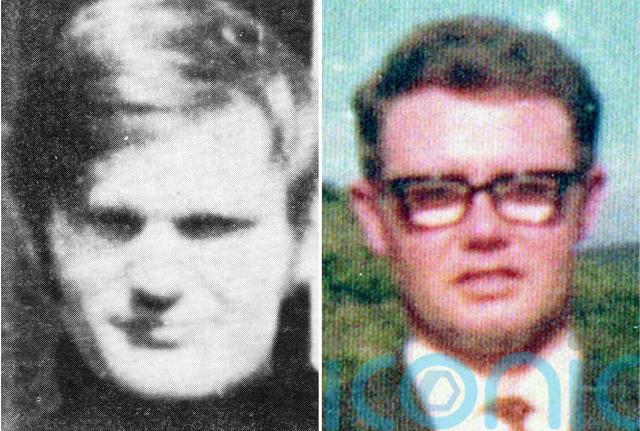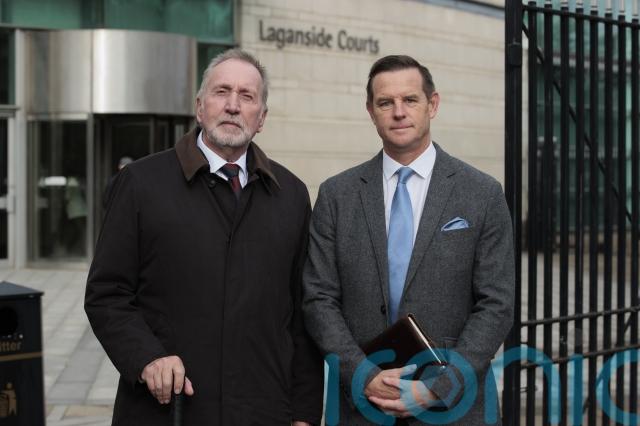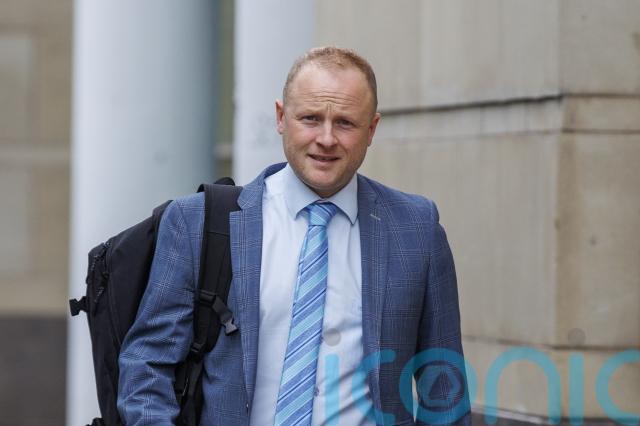
There is a “cloud of uncertainty” around “decisive evidence” in the trial of a former paratrooper charged with the murder of two men in Londonderry more than 50 years ago.
While the prosecution made a hearsay application to admit a number of statements made by other soldiers on the ground during Bloody Sunday, Soldier F’s defence said they were a “series of unreliable, fundamentally flawed, inconsistent allegations”.
The statements made by two other soldiers claim their colleague fired shots at Glenfada Park North on January 30 1972, the day when members of the Parachute Regiment shot dead 13 civilians in Derry following a civil rights march.
Soldier F, who cannot be identified, is accused of murdering James Wray and William McKinney.

He is also charged with five attempted murders during the incident in Derry’s Bogside area, namely of Joseph Friel, Michael Quinn, Joe Mahon, Patrick O’Donnell and a person unknown.
He has pleaded not guilty to the seven counts.
The trial opened at Belfast Crown Court on Monday and heard the prosecution’s opening statement as well the statements of a number of people present at the shootings.
Soldier F is sitting behind a curtain during the non-jury trial, while relatives of the Wray and McKinney families and supporters watch on from the public gallery.
Veterans Commissioner for Northern Ireland David Johnstone has been observing the case.
Outside the court, a number of supporters of Soldier F and the wider veterans’ community have gathered on each day of the trial so far.

On Wednesday, prosecution barrister Louis Mably KC argued that statements given by Soldiers G and H to the Royal Military Police (RMP) on the night of the shootings, and to the Widgery Tribunal in 1972, taken together were decisive evidence around the question of whether or not Soldier F opened fire.
He told the court it was the only evidence “capable of proving” Soldier F fired his rifle at civilians in Glenfada Park North.
Responding for the defence on Thursday, Mark Mulholland KC said there was a “complete cloud of uncertainty” around the process of how the statements to the RMP were taken.
Questioning whether G and H had colluded, he said the RMP statements were a “series of unreliable, fundamentally flawed, inconsistent allegations” from 50 years ago, and claimed they may have been “seeking to justify” their own use of force.
In terms of the statements and oral evidence given to the Widgery Tribunal, Mr Mulholland said witnesses had been questioned, not cross-examined on that evidence, pointing out that it was an inquisitorial, not an adversarial process.
Judge Patrick Lynch indicated that he planned to deliver his ruling on the hearsay applications next Wednesday.
Meanwhile, Judge Lynch raised concerns around a social media post by loyalist blogger Jamie Bryson at the start of the third day of the trial.
Judge Lynch said it was “fortunate for Mr Bryson that this is a case without a jury”, because if this had been a jury trial there may have been an application to discharge the jury.

But he said, given that he was the judge of the facts, the views expressed by Mr Bryson about the case in the post would not present a risk of serious prejudice, adding that Mr Bryson’s views were of “total indifference as far as this court is concerned”.
Neither the prosecution nor defence made a commentary when given the opportunity to.
The judge confirmed that he would continue with the trial, and would not refer the matter to Northern Ireland’s Attorney General Brenda King under the Contempt of Court Act.
But he said: “Whether the Attorney General takes a different view is a matter for her.”
The trial continues.
Subscribe or register today to discover more from DonegalLive.ie
Buy the e-paper of the Donegal Democrat, Donegal People's Press, Donegal Post and Inish Times here for instant access to Donegal's premier news titles.
Keep up with the latest news from Donegal with our daily newsletter featuring the most important stories of the day delivered to your inbox every evening at 5pm.